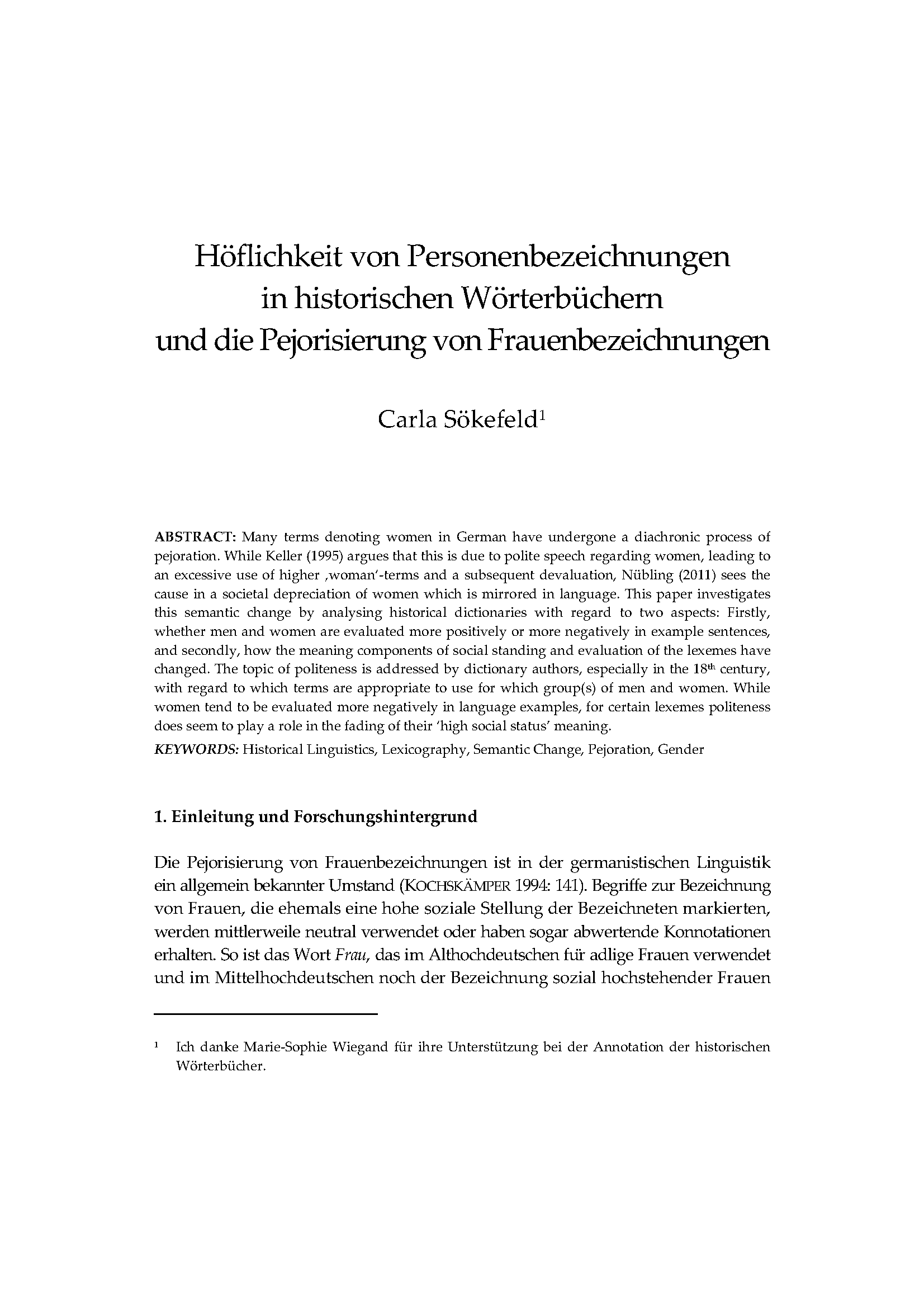Höflichkeit von Personenbezeichnungen in historischen Wörterbüchern und die Pejorisierung von Frauenbezeichnungen
DOI:
https://doi.org/10.62229/bbzg5-23/10Keywords:
Historical Linguistics, Lexicography, Semantic Change, Pejoration, GenderAbstract
Many terms denoting women in German have undergone a diachronic process of pejoration. While Keller (1995) argues that this is due to polite speech regarding women, leading to an excessive use of higher ‚woman‘-terms and a subsequent devaluation, Nübling (2011) sees the cause in a societal depreciation of women which is mirrored in language. This paper investigates this semantic change by analysing historical dictionaries with regard to two aspects: Firstly, whether men and women are evaluated more positively or more negatively in example sentences, and secondly, how the meaning components of social standing and evaluation of the lexemes have changed. The topic of politeness is addressed by dictionary authors, especially in the 18th century, with regard to which terms are appropriate to use for which group(s) of men and women. While women tend to be evaluated more negatively in language examples, for certain lexemes politeness does seem to play a role in the fading of their ‘high social status’ meaning.





